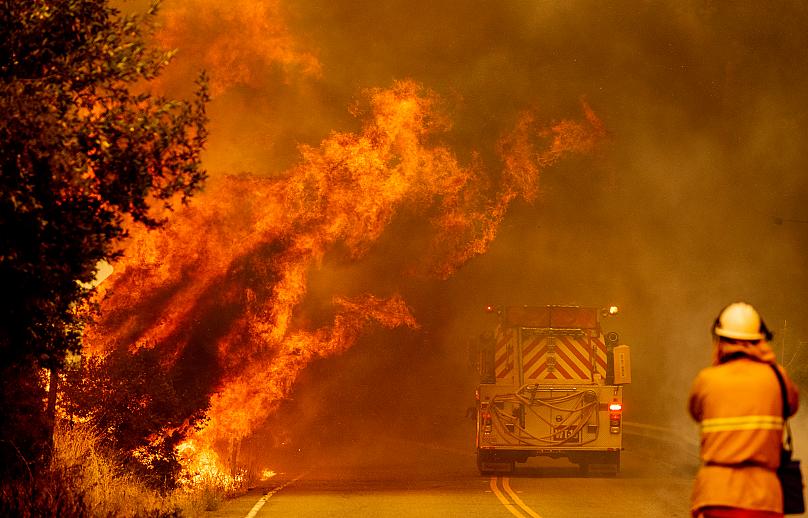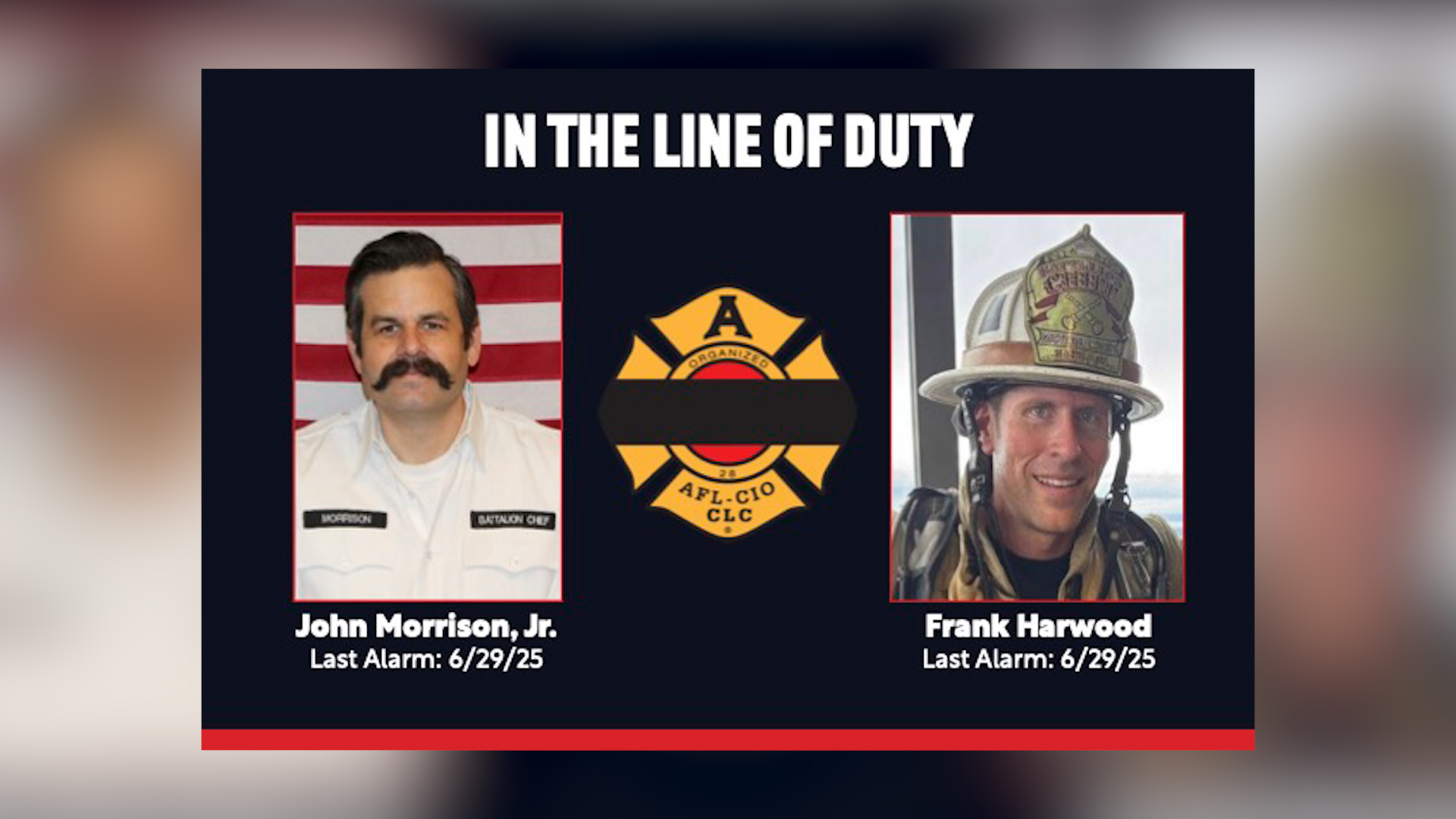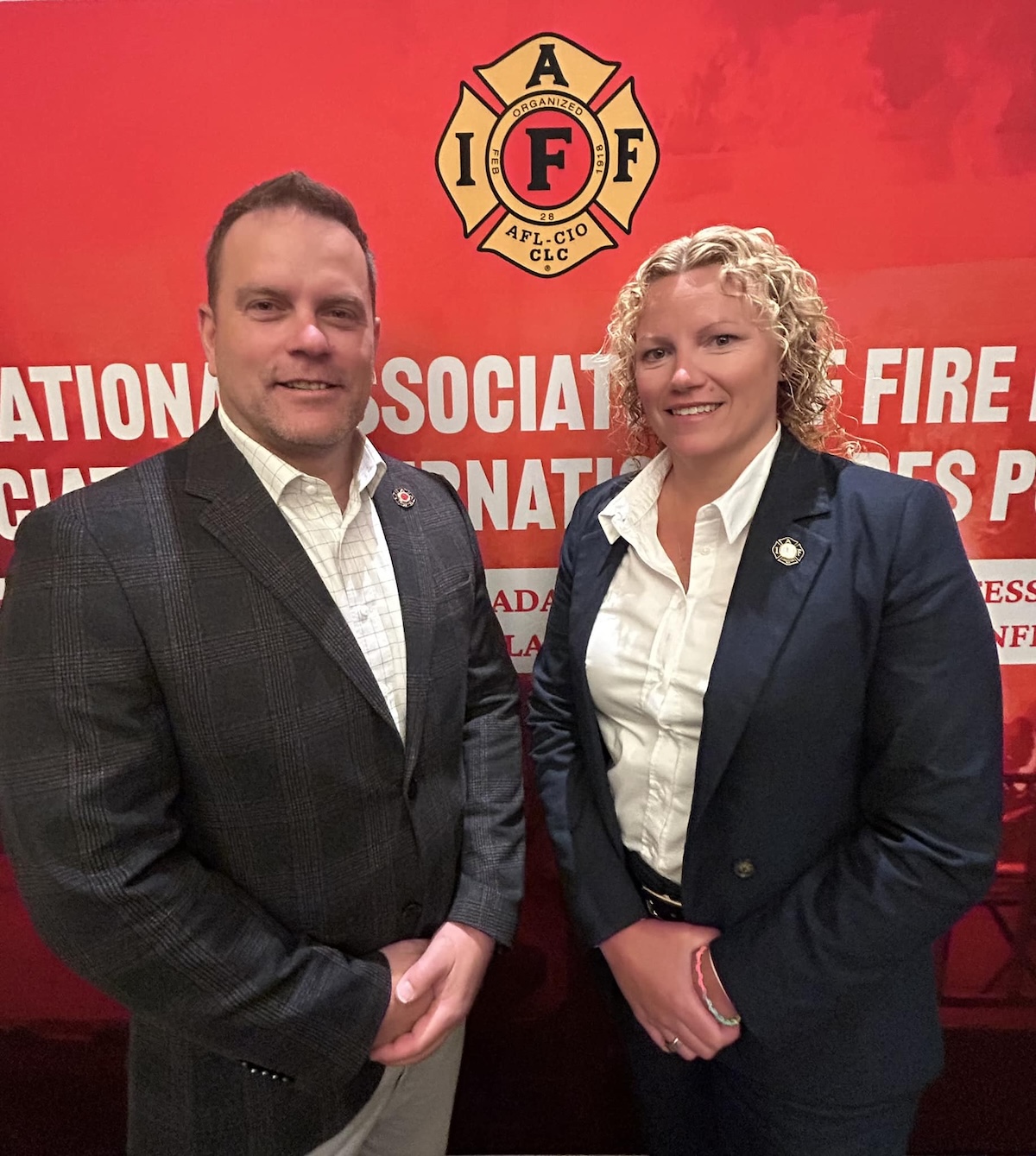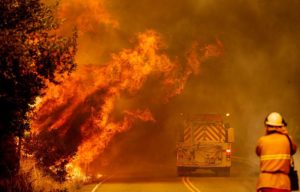 Nearly 11,000 lightning strikes over a 72-hour period have sparked approximately 370 wildfires across California, with dozens threatening communities.
Nearly 11,000 lightning strikes over a 72-hour period have sparked approximately 370 wildfires across California, with dozens threatening communities.
Because of the sheer volume of these fires, thousands of IAFF members and every available resource have been deployed to help with containment. Thousands have been evacuated and several homes have been lost, some belonging to IAFF members.
“California is inundated with an unprecedented number of fires,” says General President Harold Schaitberger. “Many of our members have already spent more than four days on the fire line and many others have been displaced from their homes. This IAFF is going to do everything it can to help our members through this very dangerous and difficult time.”
IAFF 10th District Vice President Frank Lima is leading an IAFF Disaster Response Team, including 10th District Field Service Representative and Go Team member Tim Aboudara and IAFF Director of Health and Safety Operational Services Rick Swan. The team will be assessing membership needs and providing immediate assistance.
“Our team members will be positioned in the northern, central and southern parts of the state, actively reaching out to our members,” says Lima. “We want them to know we are ready to provide immediate help and deliver anything they need.”
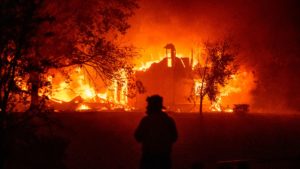
“Many IAFF members who live in the path of these fires are on the fire line right now. Some have been on the line without a break and unable to check on their own homes and families,” says Aboudara. “We are making contact with those members and determining how we can help.”
Governor Gavin Newsom had approved the hiring of 858 additional fire fighters to help combat wildfires expected during a typical season. Those resources are now depleted, and Newsom has requested out-of-state help. Governors of Arizona, Nevada and Texas have committed to sending crews and apparatus.
